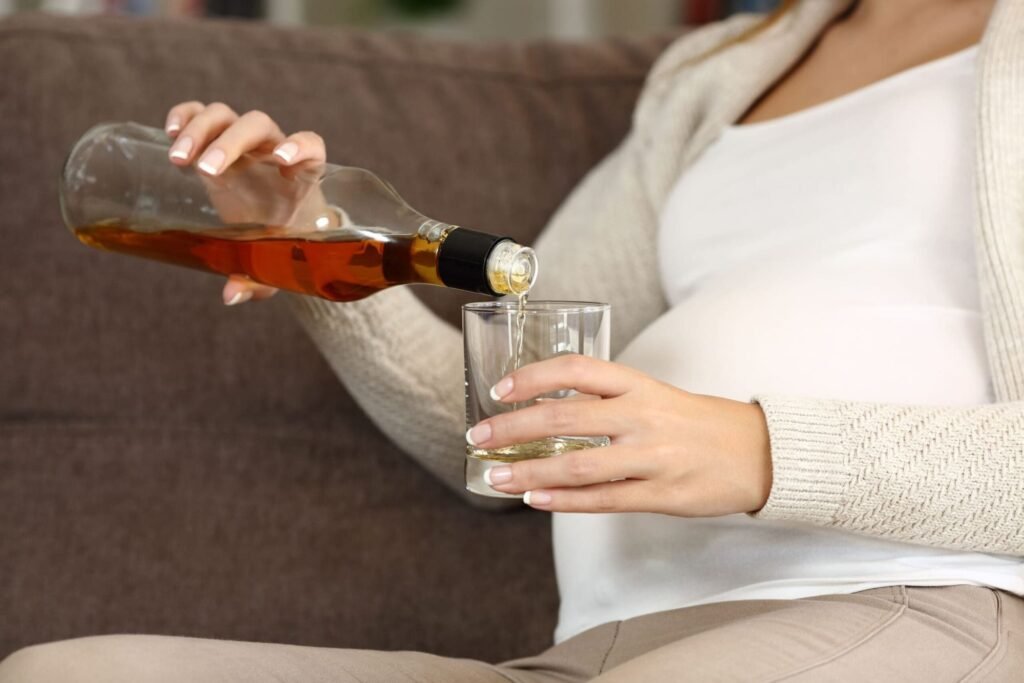Avoiding alcohol during the second half of the menstrual cycle could help women become pregnant, according to the Mount Sinai Study of Women Working in Offices published in the journal Human Reproduction, one of the world’s leading reproductive medicine journals.
As the conclusions of this study indicate, which analysed the relationship between alcohol consumption and the possibilities of becoming pregnant, women who want to conceive should reduce excessive alcohol consumption, especially during the second half of the menstrual cycle, as moderate alcohol consumption would be related to reducing the chances of pregnancy.
This is the first study that analyzes alcohol consumption according to the different phases of the menstrual cycle of women and, to carry it out, the researchers, led by Dr. Kira Taylor, associate professor of epidemiology and population health at the Faculty of Public Health and Information Sciences of the University of Louisville, United States, analyzed the data of 413 women aged between 19 and 41 between the years 1990 and 1994.
These women were followed up with a maximum of 19 menstrual cycles, and they filled in questionnaires where they reported on the amount and type of alcohol they drank. In addition, they provided urine samples on the first and second days of each menstrual cycle to check if they were pregnant. Other data, such as age, medical history, smoking, obesity, contraceptive use, and intention to become pregnant, were also recorded.
The research analyzed the relationship between alcohol intake and fertilization, which is the probability of conceiving during a single menstrual cycle. In addition, alcohol consumption was defined by groups; for example, excessive consumption was defined as drinking more than six alcoholic beverages a week, moderate consumption was three to six drinks per week, and compulsive consumption was defined as four or more drinks in a single day. The size of the drinks was also defined according to the different types of alcohol (wine, beer, or liquor).
Avoiding alcohol would make it easier to get pregnant
We found that excessive alcohol consumption during any phase of the menstrual cycle was significantly associated with a lower probability of conception compared to non-drinkers, explains Dr. Taylor, something that, in her opinion, is important because some women, who try to conceive, may believe it is safe to drink during certain parts of the menstrual cycle.
As Dr. Taylor, director of the research, details, during the luteal phase, which is the last two weeks of the menstrual cycle before the bleeding begins and when the implantation process occurs, not only excessive alcohol consumption but also moderate consumption was significantly associated with a lower probability of conception. In addition, Taylor also found that, at the time of ovulation, usually around the 14th day of the cycle, consuming a lot of alcohol was significantly associated with a reduction in the odds of conception.
Thus, alcohol consumption moderately or excessively during the luteal phase has been linked to a reduction in the odds of conceiving of approximately 44%. As for the ovulating phase of the cycle, the reduction would be 61%.
Alcohol consumption is not a method of contraception
The researchers conclude in the study that the data are estimates and should be treated with caution. Therefore, the research published in the journal Human Reproduction cannot show that alcohol consumption reduces the chances of getting pregnant, only that it is associated with it.
“The results of this study should not be interpreted as meaning that alcohol consumption prevents pregnancy,” explains Dr. Taylor, who wants to make it clear that alcohol is not a method of contraception, and even if a woman drinks a lot of alcohol, if she has unprotected sex, she can become pregnant.

